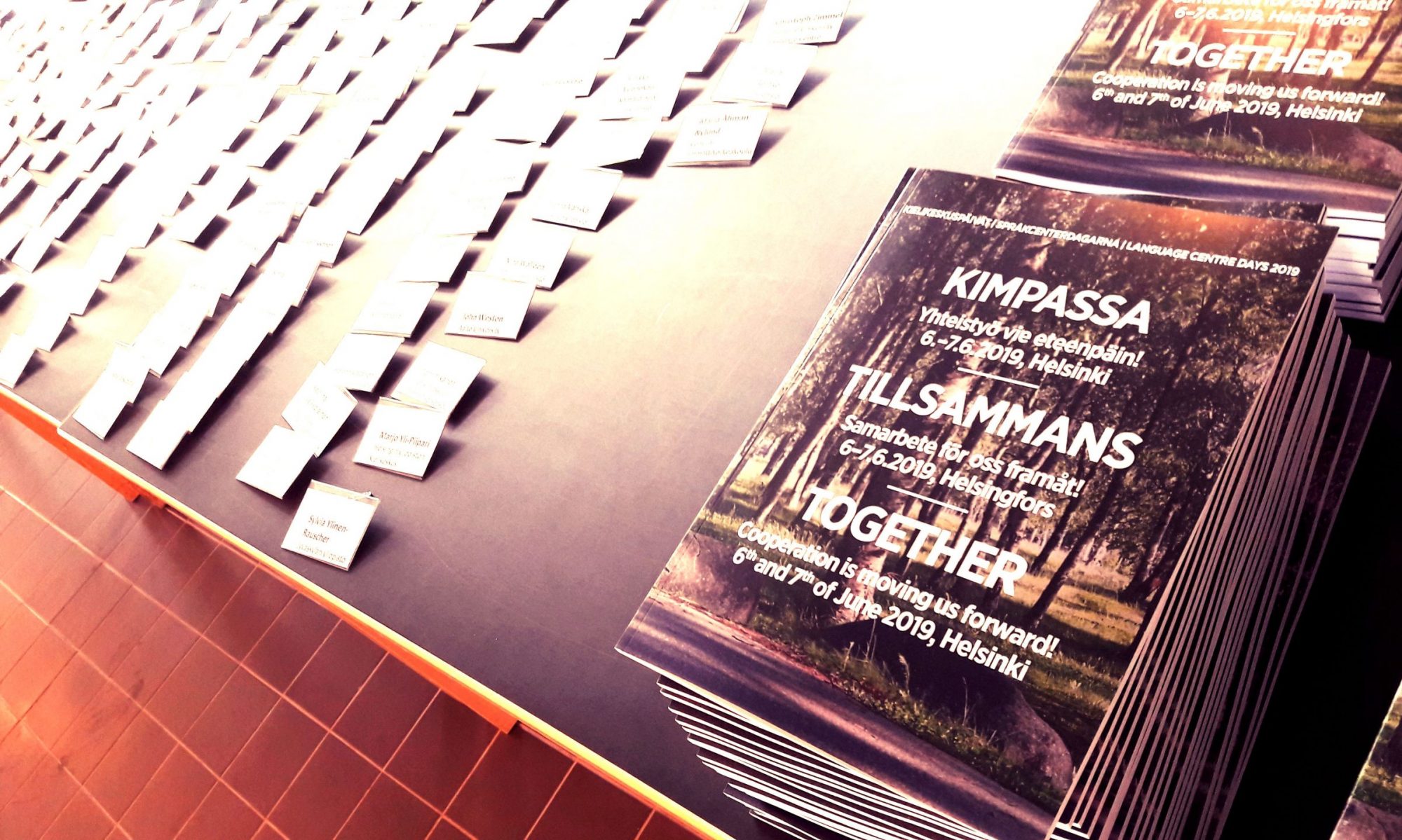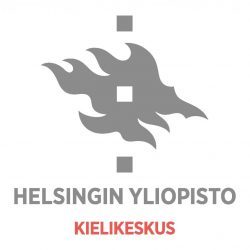The 20th Language Centre Days were organised in June in the Helsinki Metropolitan Area by the language centres of three universities: the Hanken School of Economics, Aalto University and the University of Helsinki. Due to renovations at the University of Helsinki, the two-day conference was split into a one-day session at Aalto University in the Otaniemi district of Espoo and another at Hanken in the Etu-Töölö district of Helsinki. This year’s theme was cooperation across languages, disciplines and organisations, and the title was ‘TOGETHER – cooperation is moving us forward’. The inspiration came from the forms of integration and co-teaching that are becoming increasingly common as well as from three Finnish digitalisation projects undertaken by language centres. The conference workshops and talks addressed the various forms of cooperation in a comprehensive way.
The conference took place in warm, early summer weather conditions at Otaniemi Campus and in the centre of Helsinki. The plenary speakers introduced the participants to the topics of wellbeing, future language education and artificial intelligence. Liisa Postareff, the first plenary speaker, discussed teachers’ emotions, wellbeing and pedagogical competence. She emphasised that phenomena relating to the wellbeing of higher education teachers are well worth investigating.
The second speaker was Armi Mikkola of the Ministry of Education and Culture. She outlined a long-term vision for Finnish language education, stressing how the benefits of the early language studies scheme are hoped to be reflected in Finnish higher education approximately 10 years from now.
The third plenary speaker was Antti Merilehto, MSc (Econ) and author of a book on artificial intelligence, titled Tekoäly – Matkaopas johtajalle. His speech successfully crushed many threats and myths associated with artificial intelligence. Merilehto emphasised that teachers should familiarise themselves with artificial intelligence as a societal phenomenon of significance for the job market and the future. However, AI cannot and does not aim to replace the human skill central for the job market, namely, empathy.
Digital and web-based teaching seamlessly integrated into language learning
The workshops and seminar presentations emphasised the digitalisation of communication and language studies. During the conference, three Finnish projects were being conducted for the digitalisation of language teaching: 2digi, aiming at the improvement of teachers’ digital skills, as well as two spearhead projects of the Ministry of Education and Culture, namely, DIGIJOUJOU (Flexible Finnish and Swedish learning and supervision for the needs of the future job market) and KiVAKO (Improving language resources in higher education, the website is in Finnish). Several speakers presented and shared the results of these projects. Other regular features of teaching and top priorities for pedagogical development at many language centres include flipped learning, gamification, electronic testing and assessment as well as various online courses. The most popular theme of the conference was ‘Flexible and blended learning environments’: three parallel sessions on this theme were offered throughout the conference.
The popularity of perspectives focusing on digital solutions and flexible learning environments also demonstrates that the broad and varying opportunities provided by online education for communication and language teaching have been understood. Teachers can adapt learning environments to suit their teaching and targeted learning outcomes. In the discussion on the digitalisation of teaching, it has been customary to call for a ‘pedagogy first’ approach to the diversification and digitalisation of teaching. It seems fair to say that these calls have been heeded.
Multiple forms of cooperation
Cooperation was a natural theme for a conference organised collectively by three language centres. It was also the running theme of the conference presentations, with examples ranging from the integration of language skills and subject knowledge as well as a multilingual language course to cooperation between higher education institutions and between a student and a teacher, and collegial co-development. Projects are a good way to bring together people from different higher education institutions, but broad collegial cooperation across organisations more generally appears to be a regular part of the activities of pedagogical communities like language centres.
The Language Centre Days in the Helsinki Metropolitan Area provided a good cross-section of language centre teaching and its development at the national level. The development of communication and language teaching requires research, knowledge of the job market, cooperation and modern teaching methods.
Text: Janne Niinivaara

